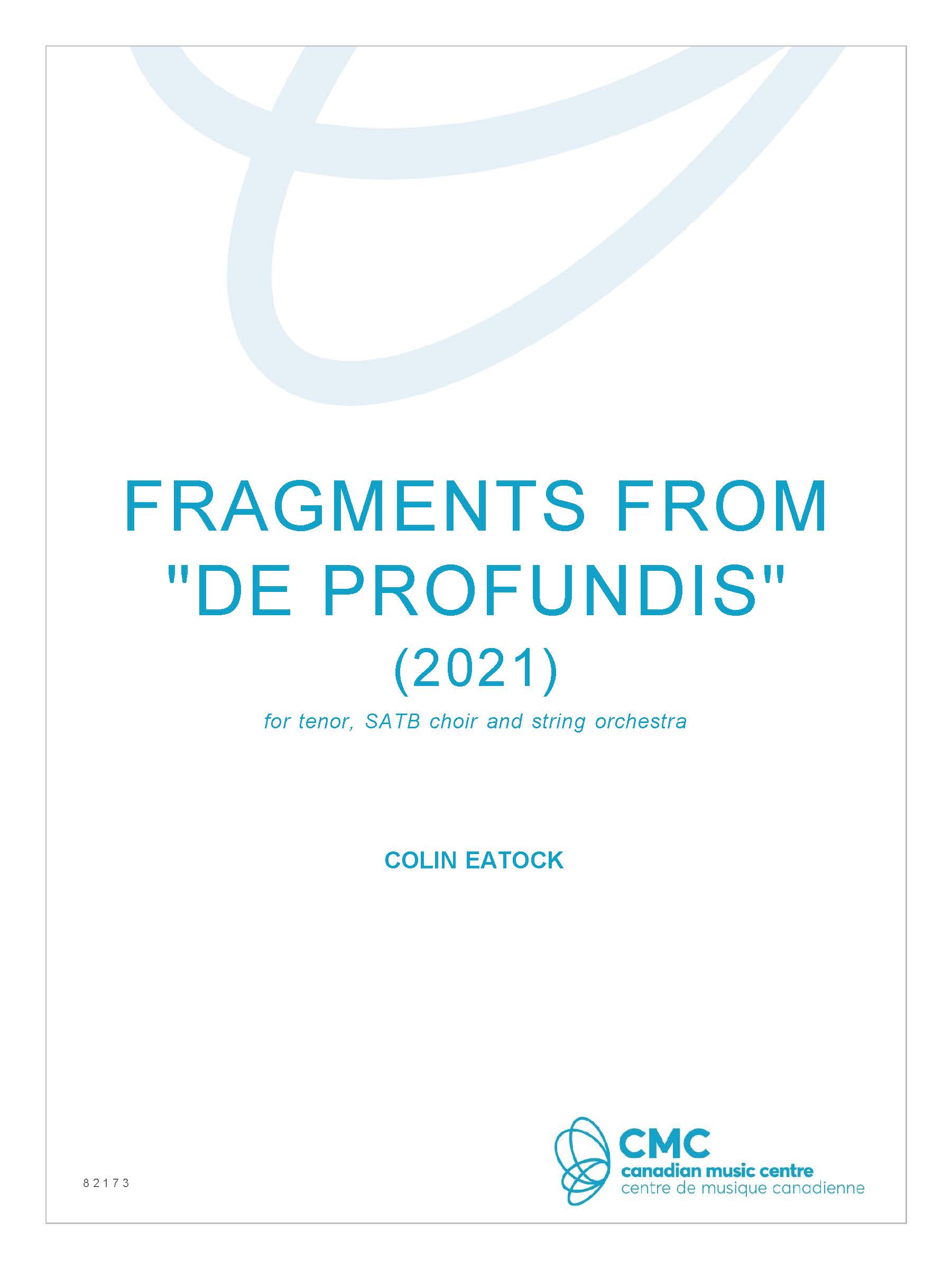The composer writes: In 1895 the celebrated author Oscar Wilde was convicted of gross indecency. The fashionable London dandy spent the next two years in four of Her Majesty’s prisons: Newgate, Pentonville, Wandsworth and finally Reading Goal. In these prisons, he was subjected to a deliberately cruel daily regime of hard labour, harsh penalties and near-total isolation. To make matters even worse, during these two years Wilde’s mother died, his wife left him (changing her name), and he was forced to declare bankruptcy. Productions of his plays came to a halt. He was, in modern parlance, “cancelled.”
For Wilde, incarceration was a radically life-changing experience. It had a dangerously harmful impact on his physical health, from which he never fully recovered. (He died just four years after his release.) Also, his time in prison led him to thoroughly re-examine his life and values. In 1897, he documented his thoughts in a lengthy, 80-page letter – an “epistle,” if you will – ostensibly addressed to his lover, Lord Alfred Douglas, but probably also intended for eventual public consumption.
The publication of Wilde’s letter has a complicated history. Excerpts first appeared in print in 1905, given the title “De Profundis” by Wilde’s literary executor, Robert Ross. This Latin phrase, which means “out of the depths” in English, is a reference to the opening of Psalm 130: “Out of the depths have I cried unto thee, O Lord.” Expanded editions of Wilde’s “De Profundis” were published in 1908 and 1949. It was not until 1962 that a complete and accurate version of the text appeared in print.
And what are we, in the 21st century, to make of “De Profundis”? Is it a tragic example of “victim self-blaming”? Or a sanctimonious mea culpa, designed to restore its author’s social standing? There are many possible interpretations – but no single theory can fully explain this remarkable text.
In its style, it is elegant and eloquent – yet conspicuously absent are the suave and witty ironies of Wilde’s earlier writing. Indeed, every line of “De Profundis” burns with heart-on-sleeve sincerity. In content, it is many things: a gruesome account of a horrific prison system, an outburst of pain and bitterness, an introspective reflection on personal transformation, an ambivalent yet heartfelt love-letter, and even a religious contemplation of sin and redemption. Wilde acknowledges flaws and failings in his character; and he believes that his prison-life has had a beneficial effect, cleansing him of his worldliness and superficiality, while endowing him with greater empathy and spiritual depth.
The fragments that I have chosen to set to music here form a highly condensed version of Wilde’s lengthy text. In keeping with Wilde’s alternation between personal expression (in which he writes in the first person) and his more generalized observations, I have alternated between a tenor soloist and a choir – creating a small-scale cantata in six movements. The fourth movement, the Latin “De Profundis” for a-cappella choir, is not part of Wilde’s text, but its inclusion seemed appropriate here.

